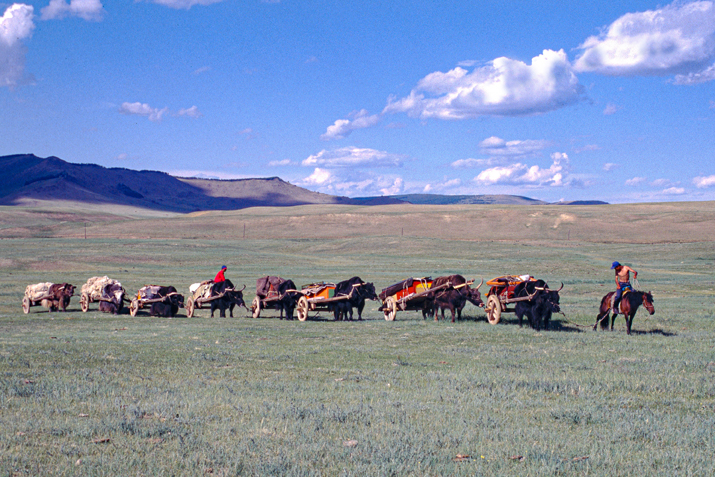
Are welcomed by the mayor and visit the town’s prison
N 49°38'671'' E 100°11'496''
Day: 73-75
Sunrise:
07:24/07:27
Sunset:
18:51/18:47
Total kilometers:
777
Soil condition:
Dust/gravel
Temperature – Day (maximum):
22°C
Temperature – day (minimum):
20°C
Temperature – Night:
3°
Latitude:
49°38’671”
Longitude:
100°11’496”
Maximum height:
1220 m above sea level

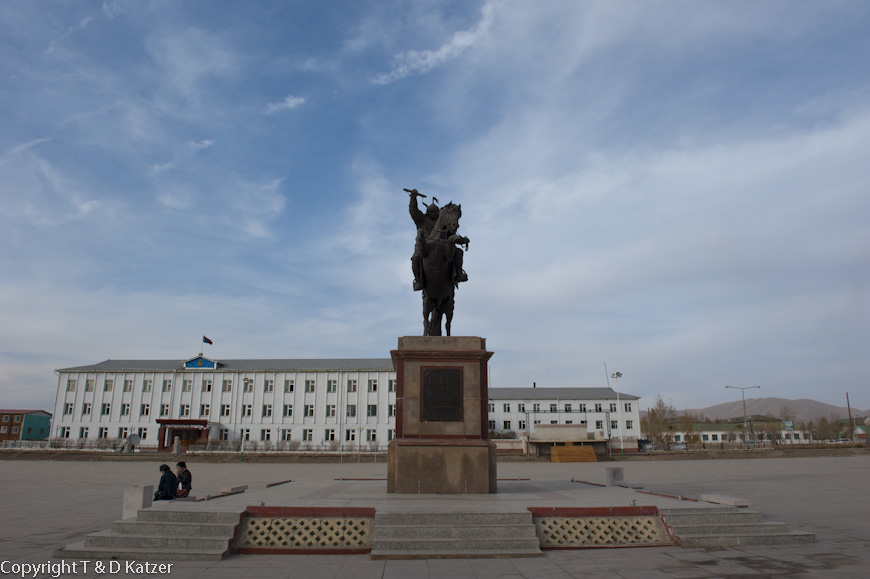

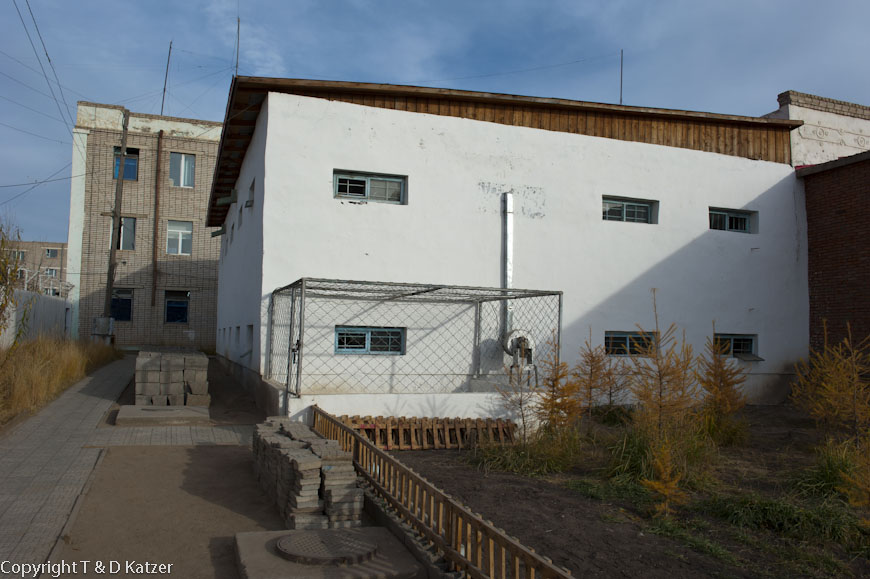
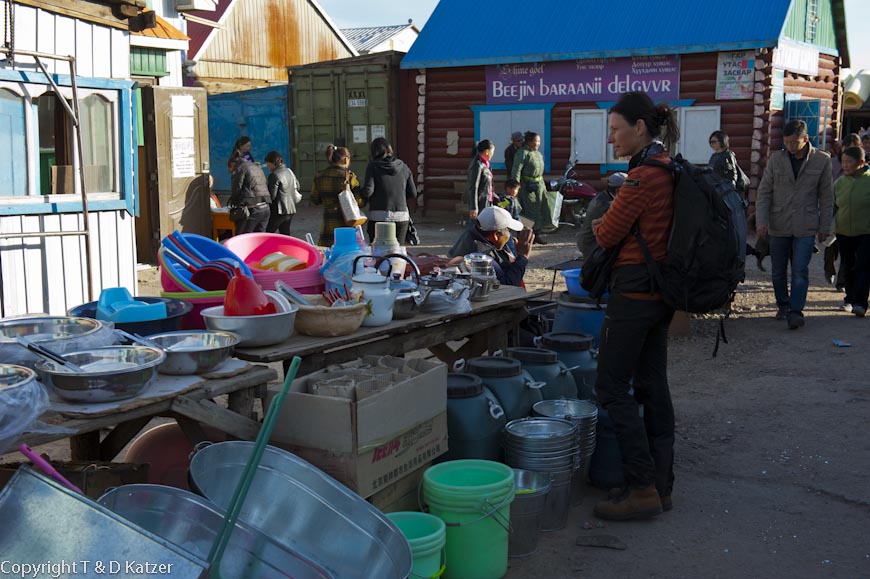
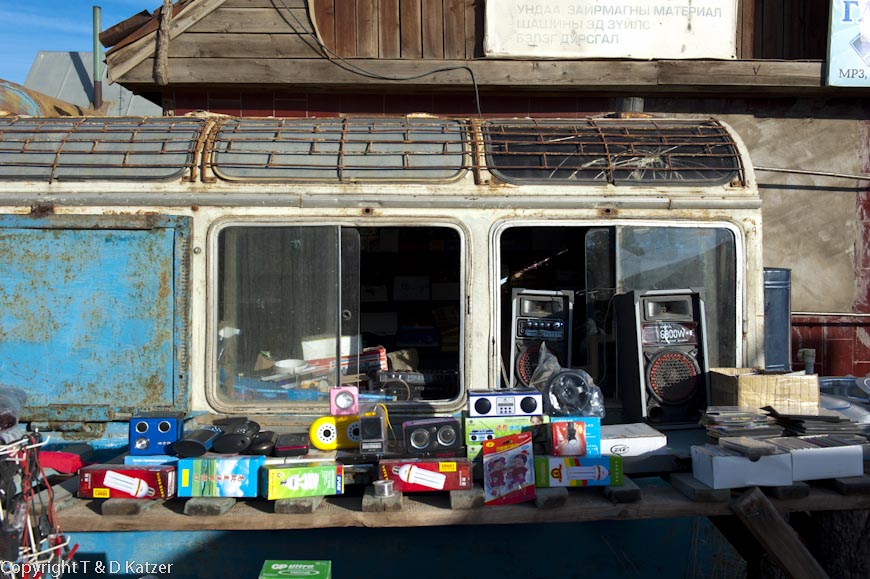
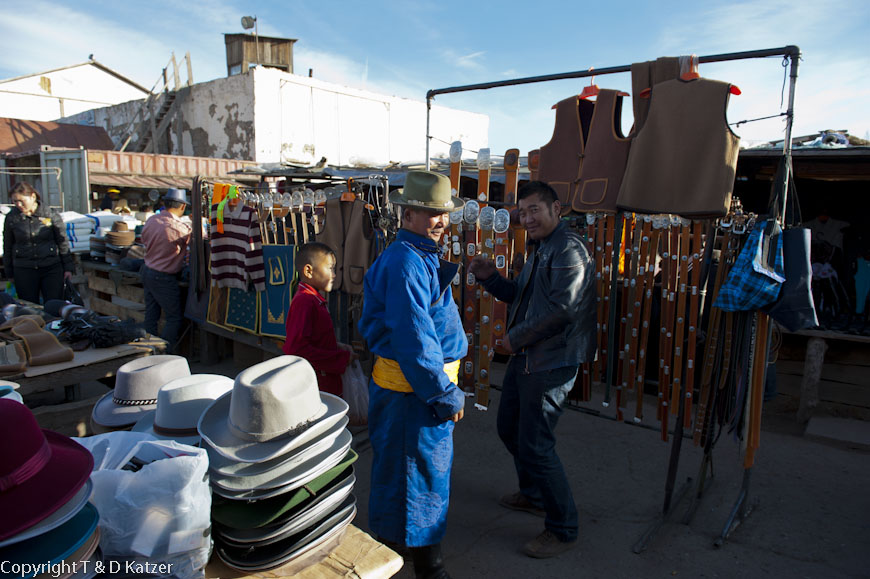


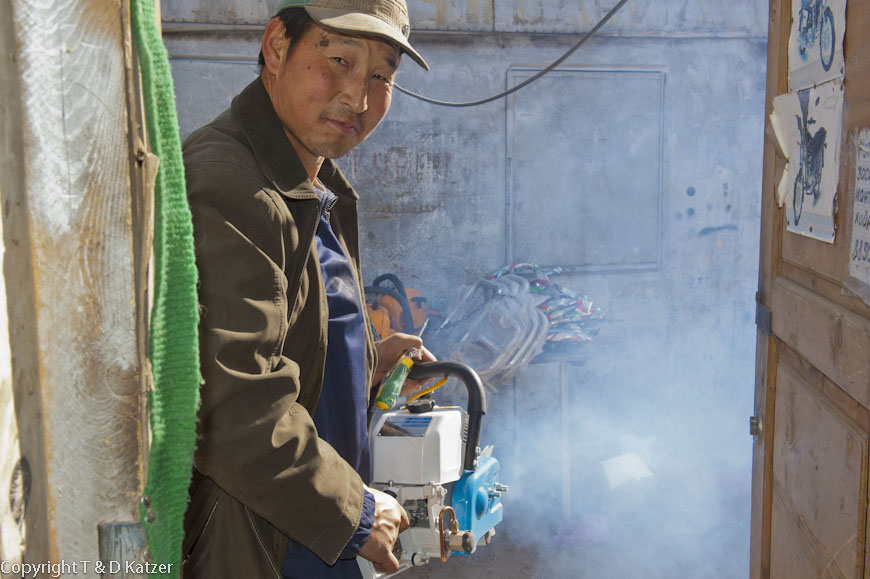
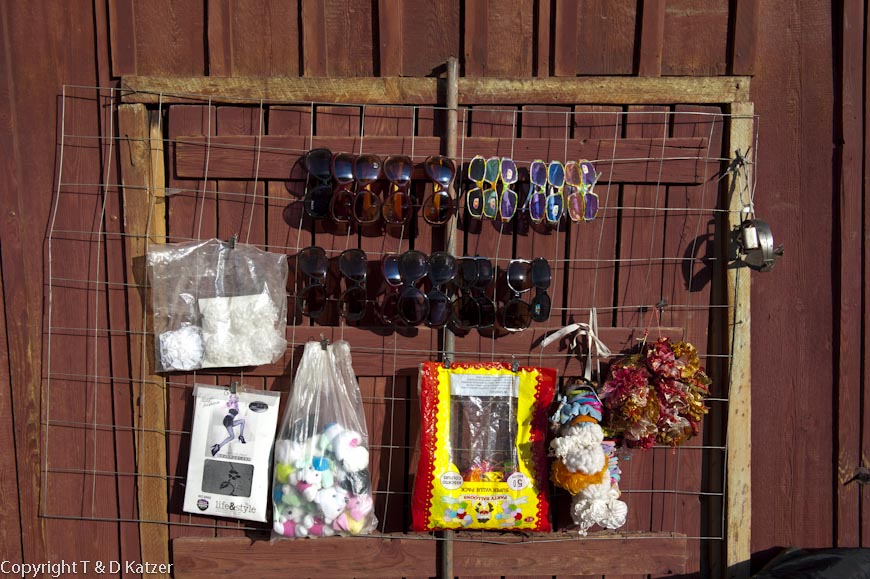
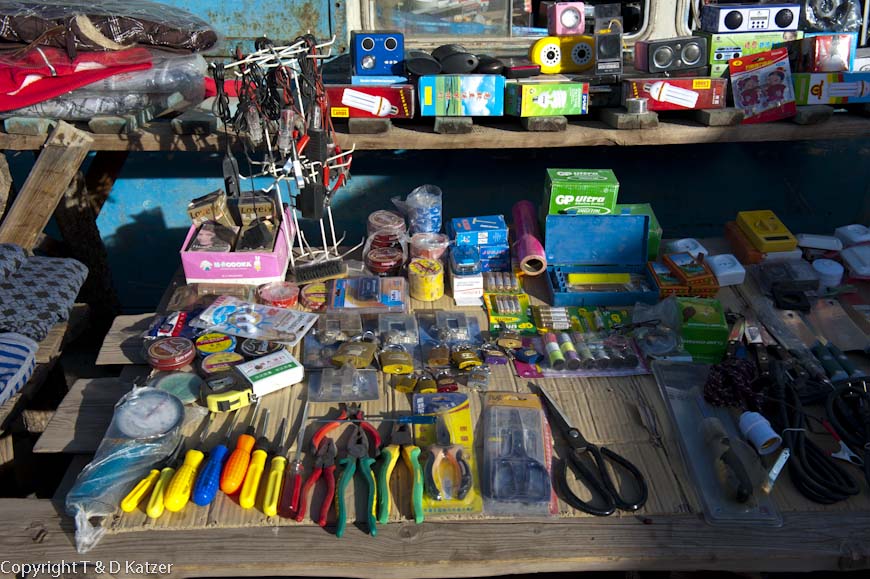
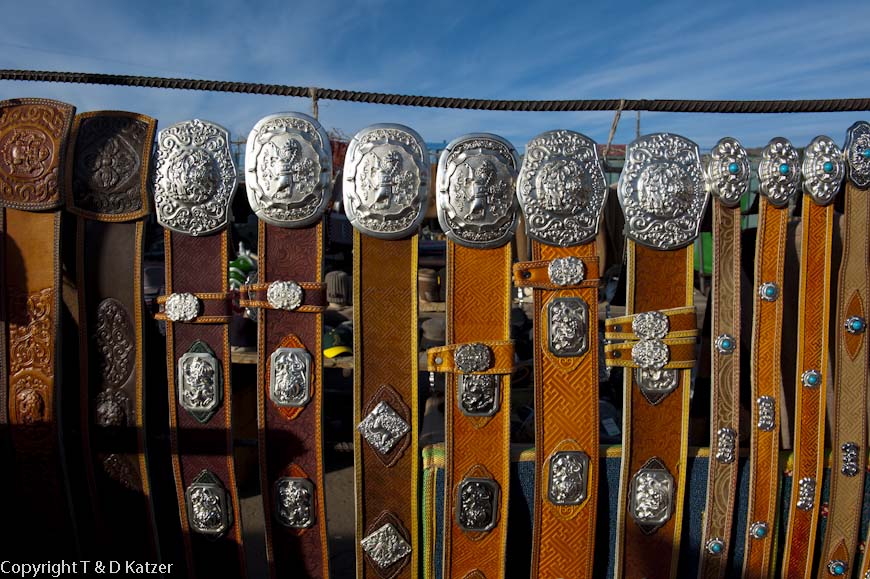

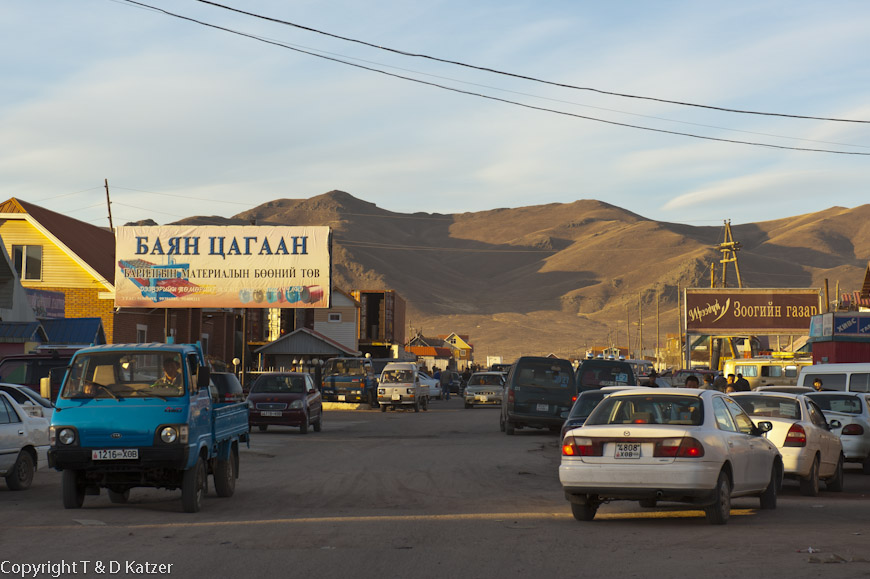

Today we have an appointment with Saraa and the second mayor of Mörön. We enter the government building at 4 p.m. and are warmly welcomed by his secretary Undrakh. Our friend Togtokh made contact with the government of Khuvsgul province over a year ago. Although I had not expected it, the provincial government showed interest in our visit. After some time, however, they realized that the procedure for obtaining a visa for a one-year stay was too time-consuming and asked Saraa if she would like to take on this work. So we came to Saraa and it is now a matter of course to pay a visit to the mayor. Regardless of this, we need the support of the government for our further expedition in the sensitive border and nature conservation area. These permits are only issued by the border troops (border troops or border military). Because we want to spend seven months there but are only issued a maximum of one month’s residence permit, this is another shepherd we have to take.
Now we are sitting in the anteroom of the politician who, together with his colleague, the first mayor, administers Mongolia’s largest province. The country is divided into a total of 21 provinces. Khuvsgol is not only the largest of them all, it is also home to the most people and has the largest animal population. There is no doubt that the man who is about to give us an audience is a powerful man in this country. “It’s nice to finally see you here with us in Mörön after all this time,” says his secretary Undrakh in perfect German. We learn that she studied German at the university in U.B. and ended up here in the mayor’s office through confusing paths. The government man opens the door on time and invites us into his office. We greet each other politely and take a seat at a large meeting table. “We look forward to welcoming you here in Mörön,” he opens the conversation. We also welcome the surprisingly young man called Ochirhuyag. “What can I do for them?” he wants to know next. “We need their support,” I say and briefly tell them our life story and the reason for our one-year stay in Mongolia. “We are of the opinion that the Tsataan tribe must be protected. This is important for ethical and human reasons and, on the other hand, the Tsataans attract tourists to their province. So it is a social and economic interplay. We will try to study the life of the Tsataan and record it for posterity. Through our reporting, many people will learn about the province of Khuvsgul. There will also be people who would like to travel to this part of the world. We also mention Saraas NGO and the good work this NGO is doing. As an ambassador for Mother Earth, one of my tasks is to work with my wife to ensure that our children will still be able to see green trees and hear birds chirping tomorrow. Mongolia’s greatest treasure is not its natural resources. These will be used up in a few years. What remains is often a destroyed environment. The real treasure of your country is its incredibly beautiful nature,” I say, to which he actually agrees with me and is delighted. I didn’t expect this reaction from a politician. Tanja and I are pleasantly surprised. Mr. Ochirhuyag then shows us a computer animation on a large flat screen about the future plans of this province. “We have already closed most of the mines and are no longer issuing new licenses. Our aim is to make the Khuvsgul Aimag (province) even more attractive for tourists. We have recognized how important our partly untouched nature is and will ensure that it is preserved for posterity,” he says. For me, this positive statement is too good to be true. But it looks like he really means it. “I will support them with all my strength. Tomorrow my secretary will write them an official letter. That way, everyone will know that the Khuvgul government is working with you. It will also give you a certain security. If you have any problems, please contact me. I will support you,” we hear. We show the mayor a few books that I have written in recent years and some brochures from and about our work. He looks at everything carefully and nods approvingly. Before we say goodbye to the helpful, nice man, we chat a little about trivial matters. “See you soon then. And heat up your yurt,” he says at the end, shaking our hands.
Shall I show you our prison project now?” asks Saraa as we leave the mayor’s office with a good feeling. “Gladly,” we reply. We walk through dusty Mörön. There are a few potholed asphalt roads here in the center, but they are about to disintegrate. “This is our police station,” says Saraa as we stand in front of the ugly, communist-style building. Saraa knocks on an iron door behind the police station. A man in military uniform opens the door and greets us in a friendly manner. We are immediately shown to the director of the prison. Major Batjargal greets us politely. The handsome, wiry man explains his request. “For three years, we have been trying to replace the totally desolate windows of my prison in conjunction with Saraas NGO. Unfortunately, we can’t raise any money for a prison project. People don’t want to give anything for something like this. Even if the prisoners have done something wrong, they are still people who are freezing here during the harsh Mongolian winter.” “Isn’t the maintenance of a government building the government’s responsibility?” I wonder. “Well, we’re far away from the capital here. There’s no budget for maintaining our building. I have to try to maintain the condition of the building with the help of donations and part of my own salary. The most important thing right now would be the windows. Come on, I’ll show you around,” he says. We enter the building, walk through a corridor and find ourselves in front of the cells. Small peepholes have been worked into the heavy steel doors, into which thick structural steel wires have been welded. The sight of this construction immediately makes me think that untamable beasts are locked up behind such a door. I cautiously peer through one of the holes. The smell of sweat and stale air hits me. Five youngsters aged around 14 to 16 gather in front of it. They laugh happily at me and seem surprised to see a European face. One of the boys has big blisters on his upper and lower lip. They speak to me in Mongolian. I can see an open toilet on the left-hand side of the small cell, which is about six square meters in size. The beds of the five occupants are boards nailed together at a height of about 50 centimetres above the floor. They stretch from one side of the room to the other. The young men have to sleep on them side by side like pegs. The dirty walls are covered in writing, signs and numbers. A dim light bulb on the ceiling provides some light. That’s it. The sight literally chokes my throat. What crime must you have committed to load up in such a crowded hole? “The boys were stealing at the market,” I’m told. “Can I take a photo?” I ask the major. “He gives me a friendly smile and says: “Please don’t.” “How long do the boys have to serve time here?” I continue to ask. “One to two months, depending on the theft and how many times they’ve been caught.” “Are people with other offenses also held here?” “There are women and men in our prison with all kinds of offenses.” Tanja and I look through another opening in another steel door at the end of the corridor. A forty-year-old Mongolian woman looks at us with a serious face and deep sadness. Her gaze hits me like a blow. “What has the woman done?” “She’s a murderer.” “Probably killed her husband,” I try to joke a little. “Yes, she did,” we hear in surprise. “I could imagine that she killed her husband because he was always drunk,” I say to lighten the mood a little. “Indeed she did. How do you know that?” the major wonders. “Oh, I only suspected that because many men in Mongolia drink a lot of vodka,” I reply. After an informative visit to the prison, we say goodbye to the major. “We’re thinking about how we can help them. You are right. Prisoners are people too and shouldn’t freeze in winter. It’s enough if they have to spend part of their lives in such small cells,” I tell him, shaking his hand.
Later, when we go to the market to do some more shopping for the winter, I can’t get the look of the alleged murderess out of my mind. As we have often seen men drunk on vodka in Mongolia and Russia, I know how highly aggressive some of them can become. Time and again we witness fights in the street. I don’t mean mass brawls here, but men getting into each other’s hair and beating each other up. So it is quite possible that this prisoner’s husband came home and harassed her, beat her or did something else to her. Maybe she just put up a fight and hit him with a frying pan. And now she is sitting as a murderer in such a gruesome cell. Tanja and I agree that we need to think seriously about how we can reduce the suffering of these people.
Dust plague over Mörön
The next morning, an unpleasant wind blows through the city at the end of the world. Dense fountains of dust swirl through the alleyways and make people cough. To buy fresh bread and a few cookies for our breakfast, I leave our yurt and walk to the nearby grocery store. Visibility is limited to a few hundred meters due to the clouds of dust. The roofs look gray-brown and the sun is completely swallowed up. Saraa told us that the spring winds will soon be hitting Mörön with this plague of dust every day. No wonder why many people here suffer from dust allergies, asthma and other illnesses. I arrive back at our yurt completely filthy. I would love to take a shower now, but there is no shower here. None of the log cabins have such luxury facilities, let alone a toilet with running water. Each cottage has an outhouse in the yard which Tanja and I have to use. Saraa told us about a possibility to take a shower in the city for some money. “We’ll treat ourselves to that,” I say to Tanja, who is trying to clean the dust off the totally filthy yurt. “Doesn’t really make much sense,” I say, pointing to the opening in the roof of our dwelling, through which large fountains of dirt are blowing in.
In the afternoon we have to go to the immigration office to register. The officer, who is not exactly very friendly, wants to know a lot about us from Saraa. Although we had to go through a huge amount of paperwork in the U.B., we were asked to hand in a passport photo. The gentleman checks our passports and especially our Mongolian identity cards as if he could find a mistake in them. After about 30 minutes we are allowed to leave again. “Now you are officially registered in Mörön. If you continue your journey and reach Tsagaan Nuur, you will have to register there again. I will arrange for your relocation from here to East Taiga in a few days,” she explains.
Saraa, Tanja and I go back to the mayor’s office. Undrakh hands us the promised letter of recommendation from the mayor. This document actually states that we are under the protection of the government. This is an important paper, which we should copy several times and show to the mayor of Tsagaan Nuur so that we can get his support as well.
For days I have been asking Bilgee to buy a sheep for his meat consumption for the trip, because we need enough time to dry the meat for our trip. “I will,” he nods and went to the market the day before yesterday. “Margaasch” (morning) was his reply when he reappeared without his sheep. Today, Bilgee has changed his mind by 180°. “We can’t buy meat because it freezes on the journey,” he explains. I wonder about this strange logic as the preparation of dried meat cut into strips, frozen or not, is the same. I leave it at that and take up Saraa’s offer to get us some fresh cow meat from the market. “It’s better for you anyway because it’s not so fatty. You just have to cut it into strips. Then you can hang it up to dry in your yurt. It will be ready in three days at the latest,” she explains.
Bilgee and I go to the market to buy more horse equipment. Unfortunately, there is not a single saddle blanket, pack saddle, halter, bridle or stirrups. So we are forced to come up with something. Saraas mother offered to sew saddle blankets for us. After today’s unsuccessful day at the market, we will gladly accept your offer. The only thing we get today is a muzzle for Mogi. We urgently need it. Hopefully this will prevent him from killing another sheep or reindeer calf on the way. This would be truly fatal and would undoubtedly jeopardize hospitality.
We spend the evenings in the yurt with our cannon fire. It is cozy. Here I finally find the time to cook. I have often told Tanja that I enjoy preparing food. She usually laughed at this, because in the last few years I had never put it into practice due to a chronological lack of time. Sometimes our parents call us on our cell phones. We are very pleased about this. Today, however, things are different. “Tanja, Denis, we have to tell you that Rufus won’t live much longer. He is in a very bad way. We’ve already spoken to the vet. He will come on Monday to put him to sleep,” my mother tells us emotionally. Tears roll down Tanja’s cheeks. Rufus has been our faithful companion for 13 years. He accompanied us 7,000 km through Australia and because he saved Tanja’s life, he earned himself a plane ticket to Germany. Rufus is not a normal dog. Anyone who has experienced it live can confirm this. And now, after 16 years of life, he is heading for dog heaven. “We wish you lots of strength,” says Tanja at the end of the sad phone call, “because my parents also love Rufus very much.
Dear readers of our story
Tomorrow, 21.10.2011, we will leave the dusty nest of Mörön. We have experienced so much here that it was impossible for me to publish the stories in a timely manner. If everything goes according to plan, and you never know in Mongolia, we will actually cover the next 300 km to the north of Mongolia on horses and packhorses. A very strenuous and daring route over high mountains. We were told of many wolves that kill horses and other animals and of brown bears that are not yet in hibernation at this time. We hope to reach Tsagaan Nuur safely and will report back as soon as we can. We would like to thank you for your guestbook and facebook entries and for keeping your fingers crossed for us.
Best regards
Tanja & Denis
We look forward to your comments!

